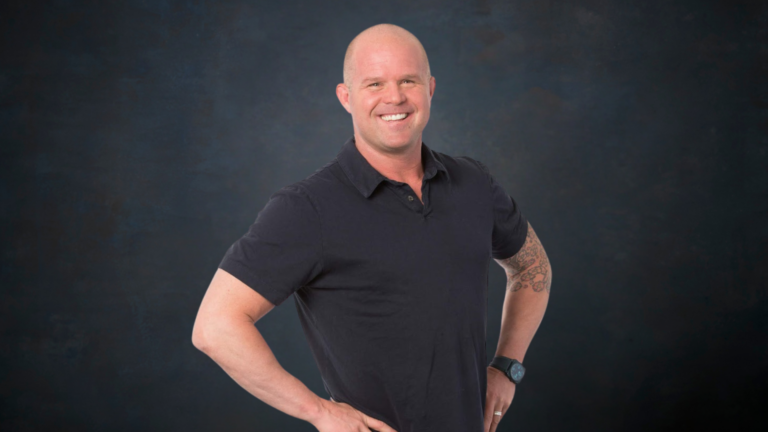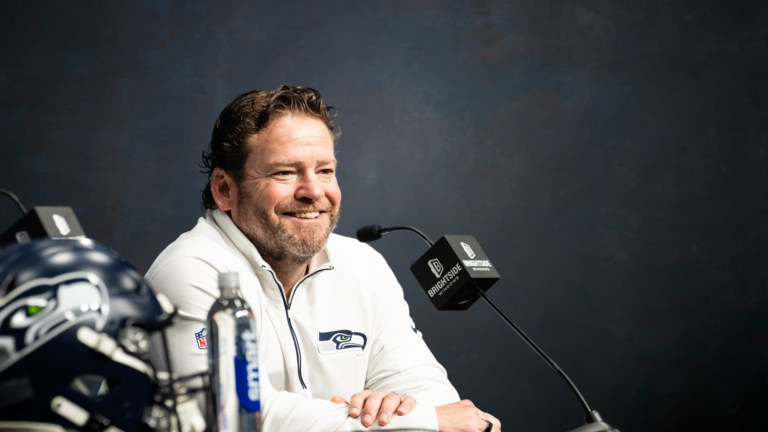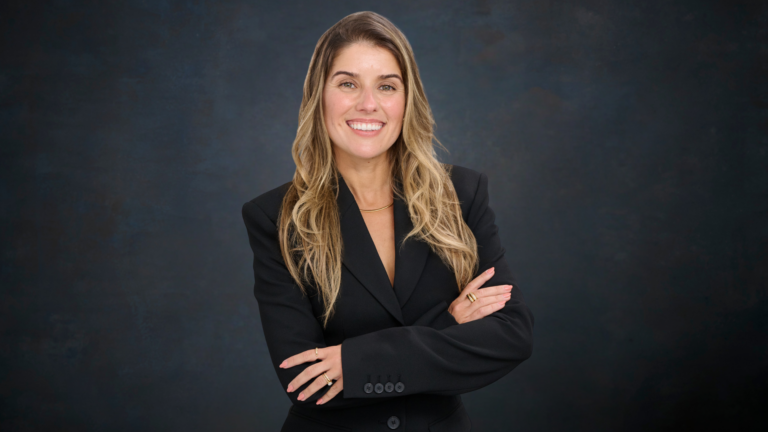This week’s conversation is with Dr. Sheila Ohlsson Walker, a Senior Scientist at the Institute for Applied Research in Youth Development at Tufts University and a Visiting Assistant Professor at the Johns Hopkins University School of Education.
Sheila’s work and research interests lie at the intersection of neuroscience, genetics, psychology and social science, with a focus on how we can create contexts in sport, school and nature settings that unlock the potential of our youth.
A former professional tennis player, Sheila knows first-hand the power sport has to build life skills that transfer into careers, and embed wellness habits that foster health and holistic well-being. She knows that adults, through the relationships they form, can activate passion, possibility and a sense of purpose in young people.
Accordingly, in this conversation we discuss the science of child development, and how to equip coaches, teachers and parents with the knowledge, skills and mindsets that promote flourishing in young people across life.
“There’s no nature versus nurture debate. If you look at all of the behavioral genetic studies and all of the biosocial studies, nature operates via nurture.”
In This Episode:
Childhood is the most malleable time period
The key issues, the key things, that I want parents, all adults who touch the lives of children, to take away is what an incredibly important time childhood and adolescence is. In neuroscience, it’s called the sensitive period in brain development. It is the most malleable time that we go through, throughout the course of human development, where new behaviors and mindsets and habits are much more deeply and kind of thoroughly laid down that last for life. So it’s this really rich, fertile time for development and laying down the behaviors and mindsets that we know are going to serve our young people over time. This includes sports and health and self-care and wellness, which we’ll talk about.
Meaning-making
We have the ability to live our way. The human brain and the mind-body system is malleable across life, but particularly in these early years, and in terms of meaning-making and the stories we tell ourselves about what’s possible, this is an iterative process. And so as adults in the lives of young people are talking with them and communicating on a daily basis, it’s important to know that these belief systems that we’re laying down, our outer voice as adults, becomes the inner voice of children as they grow older. We write about this in our book Wise Decisions. So how we frame things up, how we help young people make meaning, and how we help them tell stories about themselves about things they may have never thought possible were it not for us, it’s just vital to know how much influence we have.
The sensitive period
The sensitive period in development is just a rich developmental time where it’s more likely to form habits and behaviors and memories that last across time. This is partly because of the emotional wiring. Young people are developing their sensory systems at a much more rapid rate than their prefrontal cortices. The executive function is much later to come online, so the sensory element of development for young people and the fact that they’re laying new pathways… And there’s no tabula rasa. The minute we start developing, we’re developing neural pathways, but the more we repeat a certain behavior or mindset or pattern of thought, the more it becomes embedded as an automatic habit.
Nature or nurture? Or both?
If you look at all of the behavioral genetic studies and all of the biosocial studies, nature operates via nurture, so I think that’s a really important starting point. There’s no nature versus nurture debate. And the story of epigenetics and behavioral epigenetics in particular… Jeffrey Bland talked about this a couple of weeks ago on your podcast. He was amazing. But we are a work in process throughout life, so this optimistic story that science tells us about what’s possible for transformation and change is amazing and palpable.
We’re all wired differently
We’ve got to take each child as a unique individual child. Behavioral genetics is the study of individual differences, and we’re all wired up differently. Even identical twins are never 100% similar. They’re never correlated 100%. We wire up differently based on our experiences, and so the interplay between our environments and who we are and our kind of biological selves and the environment and how we perceive the environment, because what’s real in the mind is real in the body at a molecular level, is vital to know. And so really approaching each child as a unique human being, seeing what lights them up, use all of the cues available to you to see what brings them joy, to help nurture their nature in a way that is aligned with the things that are intrinsically motivating for them.
Living with passion and purpose
The universe opens up when we have our hearts and minds invested in an idea of what we like to do, and doing the right thing in the right way for the right reasons. I don’t know how it happens, but what I do know is that if we sit back and let life come to us, it doesn’t happen. So I try to help others believe in stories about what’s possible by just kind of nurturing, giving some forward momentum, sometimes making introductions, sometimes sending articles. But it is, I feel like the biggest part of it is my energy and helping them see and believe that I see them. I see them. I see their talent, I see what they have to offer, and I’m here to just help lift them up.
Feeling heard, seen, and felt
That basic element of being seen, valued, and heard for who we are is fundamental. There’s this concept called Ubuntu that I love. It’s a South African concept that means “I am because you are,” and it’s all about that place where we meet in the middle. And in these discrete moments in time, and they’re hard to map out and they’re hard to predict, but if one of those moments happens, it’s almost like this energy space of possibility opens up for any of us. It doesn’t have to be an adult-child relationship. Things become possible in that moment because we’re seen, understood, and valued. It doesn’t seem like a stretch. And when we can put these ideas into other people through that meeting of the heart, soul, energy, this expansiveness opens up that I think opens up the possibility set. And it’s about this basic element of feeling felt.
The power(s) of sport
Any type of physical activity is good, and one thing that all sports have in common are exercise biochemistry, which lifts everything. If you think about a tool for prevention on the mental health, emotional health, physical health side of things, then of course health is foundational for all. We know that physical activity of any kind is literal medicine, serotonin, dopamine, oxytocin, norepinephrine, all of these biochemicals that it’s better than going to the pharmacy and it’s an endogenous pharmacy, even better. So because of staying active, and we as human beings, we’re designed to move our bodies, to use our brains, it’s just this dynamic process we’ve been engaged in since the beginning of time. We think better when we are also moving our bodies.
What does “mindset” mean?
By mindset, I think of how almost the lens through which things come into our lives, our perceptual grounding for things that happen in our lives. And it really is the meaning that we make of things and our perception of the world around us and not objective reality that makes a difference when the rubber hits the road. Because again, what’s real in the mind is real in the body at a molecular level.
What’s true for the mind is true for the body
What we perceive to be true is what’s real in our minds. What might be stressful for you might not be stressful for me and vice versa. It’s a synthesis of our nature and nurture over time, our life experiences, how we’ve wired up, behavior that’s been modeled for us by adults in our lives as young people. There’s this wonderful quote, don’t worry that your children aren’t listening to you. Do worry that they are always watching you. So however we make meaning, however we perceive reality, that is what is going to be true for us.
YODA
I would say that really trying to find the light on the horizon for anything, looking for, as you said, if we are at the edges, let’s say I had a bad match or a tough day or a difficult interaction with someone, just try to go back and learn from it. I’ve got to quote here, “Breathe, you are right where you’re meant to be.” I just try to learn from wherever I am and whatever I’m doing. And that takes humility, it takes vulnerability. And also just keeping in mind the things that are the most important to me. So going back to our book, the Wise Decisions book. We have an acronym in there called YODA. And Yoda is Your Own Decision Advisor. And it’s really this inner place, our inner voice and how we can train our inner voice to be this powerful coach, to help us make decisions that work for us rather than against us.
Value the process
In terms of productivity and outcome, I think it’s so important to value process over outcome in general and teach that to our children also. It’s not about the end game because after the end game, there’s the next end game. But it’s how we carry ourselves through life that’s really important. And that is what we’re modeling for our children every day as we engage in little interactions, big interactions help them make decisions. They absorb so much from us that just, it’s not said. It’s really, it’s the energy that we experience together and how that gets embedded into our children.
Why focus on youth sports?
The reason youth sports is so important to me is because it really, tennis gave me a baseline of self-care and wellness skills embedded as habits early on, the things that have kept me afloat across life. I wouldn’t have accomplished nearly the things that I have had I not been an athlete, had I not been healthy, had I not had an outlet to exercise my creativity. Sports helped me dream about bigger possibilities and opportunities. I care so much about sports and coaches being good coaches, because I’ve had both excellent coaches and I’ve had not good coaches. I’ve had bad coaches. And the vast majority of my coaches have been extraordinary people who helped me grow into a better version of myself, but I had one coach who was sexually abusive when I was 15 years old, who I trusted like a parent, and that experience completely derailed my developmental train, junior year of high school and particularly senior year of high school. It really changed how I thought about the world around me, and safety, and trust.
Using her pain to fuel her purpose
This is the first conversation of this nature that I’ve had that is, and I do want to talk about this in the way that I can be the biggest asset to help sport get to where it needs to go, because we’re not there, and they need help, and the developmental story of what happens for young people, even in one moment for a coach, for an adult, can be a lifetime of riding the ship for a young person, because these memories don’t go away. And if they get replayed in a downward spiral, that’s where despair lies, and we lose human potential. We lose individuals, lose quality of life. And every person needs to be seen, and loved, and valued for them to light up and activate themselves to be change agents in our world.
What would she say to someone who has been abused?
I would say to them, love yourself. Take that pain, take that anger, take that fuel, and turn it into something that’s going to help others, because that will help you in the process. And transform. Start with yourself, the self love, having people around you who you know can trust, who support you, who see you, who protect you, who nurture you, and then make your pain your purpose, and you’ll light up the world in your own unique way. And in the end, that’s all we can do.



